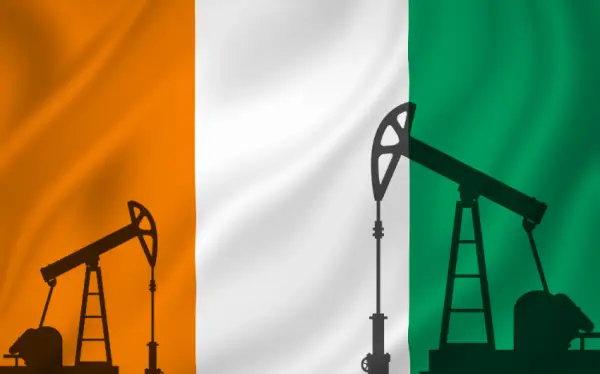Ivory Coast is emerging as a powerhouse in West Africa’s oil and gas industry, driven by a solid regulatory framework, attractive fiscal terms and innovative partnerships. Home to significant hydrocarbon reserves and progressive policies, the country has drawn investments from leading energy companies, cementing its status as a regional hub for energy production and exploration. The African Energy Chamber (AEC) (www.EnergyChamber.org) applauds Ivory Coast’s efforts in creating an environment where oil companies can thrive.
This week, the AEC is participating at the SIREXE 2024 conference in Abidjan. Led by Executive Chairman NJ Ayuk, the chamber engaged with global service companies such as Halliburton, Africa Global Logistics, Sahara Group and SLB, encouraging them to prioritize expansion and innovation. The AEC is committed to supporting Ivory Coast’s initiatives to reduce energy poverty, promote local content, and foster economic development. As the country continues to expand its role in the regional oil and gas sector, the AEC emphasizes the importance of ensuring that the energy transition includes oil. It is essential that industry stakeholders advocate for a just transition that recognizes the ongoing importance of oil in Africa’s energy future while transitioning to more sustainable energy sources.
Ivory Coast’s strong policies have laid the foundation for oil companies to drive large-scale projects. Notably, the Baleine field, spearheaded by Eni and the nation’s national oil company Petroci, is a prime example of what is possible when innovation meets efficient governance. The field currently produces over 22,000 barrels per day (bpd) and is set to scale significantly. As Africa’s first net-zero (Scope 1 and 2) hydrocarbon project, the project is advancing with the arrival of critical infrastructure – the Petrojarl Kong FPSO and Yamoussoukro FSO – set to boost production to 60,000 bpd and add 70 million cubic feet of gas by the end of 2024. The project features the continent’s first-ever net-zero FPSO. This sustainable approach is what the continent needs. Companies such as Eni are using low-carbon solutions to not only operate but prioritize decarbonization. This is what sets them apart. Petroci’s partnership in this project underscores its pivotal role in driving Ivory Coast’s energy ambitions.
In addition to the Baleine field, Eni made a significant discovery in March 2024 in Block C1-205 – known as the Calao find – which is estimated to hold up to 1.5 billion barrels of oil. This discovery is expected to generate substantial revenues and create over 8,000 jobs. Ivory Coast plans to begin exploiting the Calao field by 2026, strengthening the country’s energy security and economic growth.
Amid project advancements, Ivory Coast is also strengthening its local content policies. The government has recently approved in principle the National Upstream Local Content Policy, which seeks to reduce dependency on foreign expertise by building domestic capacity. The policy is currently undergoing consultations across all regions, reflecting the country’s commitment to fostering economic sovereignty and strengthening its energy sector. As the voice of the African energy sector, the AEC commends the efforts by the government to advance local content policy, emphasizing the need for oil operators to increase local hiring, training and contracting.
The country is also strengthening its position through international partnerships. In August 2024, Ivory Coast’s Ministry of Mines, Petroleum and Energy signed production sharing agreements (PSAs) with Eni for four offshore blocks, promising an $80 million investment in exploration over three years. Similarly, onshore exploration has seen a boost with PSAs signed between the Ministry and Elephant Oil for three blocks, further diversifying Ivory Coast’s energy portfolio and unlocking onshore hydrocarbon potential.
Exploration campaigns have revealed substantial deposits across the country and key international partnerships continue to advance Ivory Coast’s oil and gas sector. In March 2024, Vaalco Energy acquired a 27.39% stake in the Baobab field through its purchase of Svenska Petroleum Exploration, valued at $66.5 million. The Baobab field, located offshore Ivory Coast, is expected to add substantial capacity to Vaalco’s operations. Similarly, in November 2023, Ice Oil&Gas signed a PSA with Petroci for offshore block CI-705, furthering exploration in the Grand Lahou area with a commitment to invest $40 million in the next seven years. Further strengthening its energy footprint, Murphy Oil signed production-sharing contracts for five blocks in Ivory Coast in June 2023, spanning both shallow and deepwater areas. The company’s activities include developing the Paon deep-water gas and light oil field in block CI-103 and evaluating potential from previous drilling in blocks CI-531 and CI-709.
Ivory Coast’s efforts to position itself as a regional oil and gas hub extend beyond production. The Ministry has identified 26 blocks available for leasing and is accelerating certification of reserves in existing blocks. Downstream opportunities also abound, with Petroci spearheading projects in refining and petrochemicals. Notably, Société Ivoirienne de Raffinage (SIR), Ivory Coast’s national refining company, is playing a central role in meeting the country’s growing energy demands, underlining the importance of downstream development in supporting long-term energy stability and economic growth.
“Ivory Coast is not just a key player in West Africa’s energy sector; it is a model for what the future of African oil and gas development should look like. With its progressive policies, commitment to local content and willingness to embrace innovation, Ivory Coast is positioning itself as a beacon of sustainable and inclusive growth,” said Ayuk. “It is crucial to continue building on these partnerships, invest in infrastructure and ensure that growth benefits the country and the broader African continent.”
Distributed by APO Group on behalf of African Energy Chamber.



